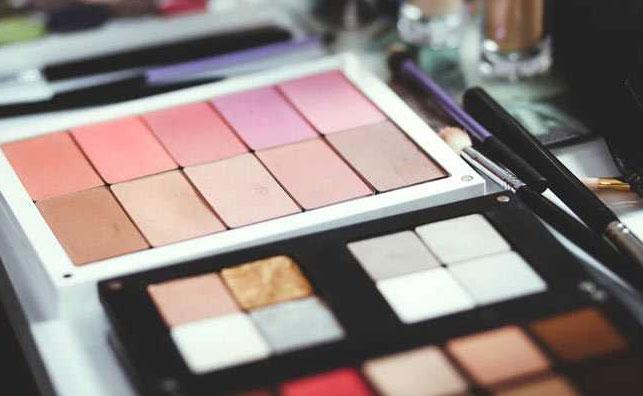
In a development that may have far-reaching industry-wide implications, the industry regulator, Drug Controller General of India (DCGI), has served a notice to the top e-commerce companies, Amazon and Flipkart for selling spurious cosmetics products. One more e-commerce player is also said to be under the scanner. A report
Amazon and Flipkart, two of India’s largest online marketplaces have received notices from the Drug Controller General of India (DCGI) for alleged sale of fake and adulterated cosmetics via their platform. Indiamart, a major B2B e-commerce site that acts as an intermediary for businesses has been served notice by the regulator as well. The regulator has come down strongly on these sites, asking them to respond to the notice within 10 days, else warning them of strict action, a TOI report stated.
Coming at the beginning of India’s biggest festive season, this is a major setback for these web portals. October marks the commencement of the biggest shopping season of the country, with Diwali, the marriage season and New Year being major festivities. Big consumer spends are seen during this time.
Why the notices were served?
The notices follow pan India raids on October 5th and 6th by the Central Drugs Standard Control Organization (CDSCO), under which the DCGI operates. During these raids on the various shipping hubs and warehouses of the said web portals, the CDSCO inspectors recovered locally made cosmetics having no valid manufacturing license and imported cosmetics without any registration certificate. They also found some cosmetics containing ingredients from the “negative list” of the Bureau of Indian Standards.
Under the current regulation, to indigenously manufacture cosmetics, a manufacturing license is required while a registration certificate is mandatory for the cosmetics import. Additionally, all cosmetics must adhere to the standards set by the BIS, ensuring use of no ingredients mentioned in the “negative list”.
The DCGI S Eswara Reddy has given the e-commerce websites 10 days to respond to the notice, failing which it will be presumed that they have nothing to say in the matter and penal action will be initiated. Under the Drugs and Cosmetics Act, the penal action could range from a monetary fine to imprisonment for sale of such dubious products.
What the web portals have to say?
An Amazon spokesperson clarified that Amazon is a third-party marketplace and does not own any of the products sold via its site. He explained that the web portal only facilitates sellers by providing them a platform to list their products and sell them to the Indian consumers. Therefore, it is the sellers who are responsible to adhere to the standards set by the law.
However, he also spoke about Amazon’s high regard for a superior customer experience. In keeping with this commitment, Amazon takes strict action against sellers who are indulging in such malpractices as selling phony cosmetics illegally, when such cases are highlighted to the company.
Indiamart refuted receiving any such notice from the regulator. The website insists that it is not a marketplace like other e-commerce websites, as no selling or trading happens on Indiamart. It is only a place for manufacturers or traders to advertise their goods. The Indiamart spokesperson added that the website takes stringent action against persons involved in any such unscrupulous activity and immediately deletes the product listing.
Flipkart is yet to issue a statement about the developments.
Why the Indian Cosmetics Market needs regulation?
The Indian cosmetics market has grown at a phenomenal rate since the 1980s. It currently stands at $6.5 billion and is one of the fastest growing markets with an average growth rate of 25% vis-à-vis the global cosmetics market, which is growing at 4.3%, as per 2017 RedSeer Consulting study. It is anticipated that the Indian cosmetics market will reach $20 billion by 2025, and thereby make India one among the largest consumers of cosmetics, contributing to 5% of the global sales.
Cosmetics is a high repeat category and that, along with the increasing penetration in the country, has given a thrust to e-sale channel in cosmetics. Online sites contribute 2% of the organised market sales, with Amazon, Flipkart, Nykaa, and Purplle being the more successful platforms. These sites feature all type of brands, be it the mass positioned brands like Lakmé, Himalaya, L’Oréal or the luxury and premium brands like Mac, Forest Essentials etc.
The profit margins too are extremely lucrative, going up as much as 90 percent in luxury brands and ranging between 75 to 80 per cent even in popular brands.
However, the negative statistics are high as well. A recent report claimed that a whopping 25 percent of all the fake luxury products were sold via the e-commerce channel. It also stated that 30 percent online buyers receive bogus products.
The recent raids only confirm to these reports and further strengthen the case for better regulation. A fast-growing market and high margins are strong enticers for businesses looking to make quick money and strong regulation will enable the sustainable growth of the segment.
Sources & references:
https://eoindia.com/amazon-flipkart-get-notice-from-drug-controller-for-selling-fake-cosmetics/
http://redseer.com/wp-content/uploads/2017/10/118-Cosmetics-Industry-Report_Final_July2017.pdf

